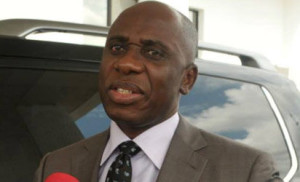
Confronted with the lingering controversial issues of payment and sharing of the Practitioners Operating Fees (POF), licensed Customs agents in the country have insisted that they are not under the regulation of the Ministry of Transport and therefore cannot be made to pay the POF.
At a town hall meeting of clearing agents, freight forwarders and other stakeholders in the cargo freight chain organised by the Maritime Reporters Association of Nigeria (MARAN) held yesterday at its International Press Centre in Apapa, Lagos, the two dominant clearing agents associations operating in the country’s ports and land borders, the Association of Nigerian Licensed Customs Agents (ANLCA) and National Council of Managing Directors Licensed Customs Agents (NCMDLCA), argued that they do not fall within the regulatory purview of the of the Council for the Regulation of Freight Forwarders of Nigeria (CRFFN) since the council’s establishing Act only empower it to regulate freight forwarders.
Discussion at the meeting focused on POF approximated to hit an annual sum of N2.5 billion if all practising clearing agents and freight forwarders eventually subscribe to its payment.
National President of NCMDLCA, Lucky Amiwero said the regulatory framework of the CRFFN is formed on illegal grounds, as the council’s current registrar, who is not an elected chief executive has no such power to regulate or collect fees other than the freight forwarders subscription fee because he was appointed as a staff.
He said, “The freight forwarders associations not being members of the council cannot collect any fees. As it is today, there is no council and the minister cannot act when there’s no council. He cannot act outside the council. The council does not have chairman or vice. In fact, the council is not existent until it is reconstituted.
“There is no provision in the law that gave the minister regulatory powers. Jukwe (the current registrar of CRFFN) is not an elected chairman of the council. He was only appointed. He is not even a freight forwarder.
“In a country where all of us are licensed customs agents, CRFNN laws do no appear relevant to the practice of customs agents. We are not freight forwarder. Freight forwarders are to operate along international boundaries and not in the port.
“We are under the Ministry of Finance, not Transportation. The Finance Ministry has regulatory powers over us, not the Transport Ministry.”
Most of the licensed customs agents who spoke voted that the council’s board was meant to be occupied by professionals and not proxies of the government, saying “We should regulate ourselves and not have government regulate us.”
An official of the AREFFN, Jones Idemili, who is chairman of its Apapa chapter, noted that the division among clearing agents and freight forwarders began when many associations erupted in the cargo clearing industry.
“The issue of POF was easier to handle when it was only one association. Now there are about 15 freight forwarders association but only about five subscribed to the CRFFN,” he noted.
He blamed the Nigerian Customs Service for listening to the Minister of Transport which warned that POF will increase the cost of clearing goods, making the minister to suspended it in 2012.
He however recommended that if it is eventually collected, the POF should be shared 60 per cent to the CRFFN, 35 per cent to associations and five per cent to the paying clearing agent.
Also making his submissions, the national president of ANLCA, Prince Olayiwola Shittu cautioned that beyond the payment and sharing of POF, regulatory issues as determined by the CRFFN Act must be reviewed, as it does not practically cover the clearing agents.
Throughout the discussions, attempts were made by speakers to define a freight forwarder. They posited that if the CRFFN must regulate the clearing agents, its laws must reflect that and not restricted around freight forwarders.